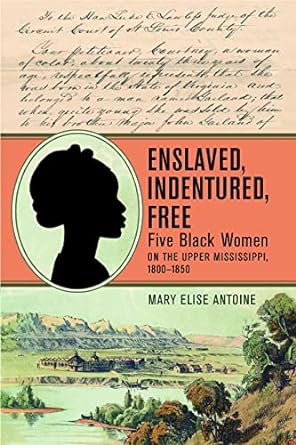
The Platteville Public Library hosted a discussion led by author and historian, Mary Elise Antoine, regarding her most recent book, “Enslaved, Indentured, Free: Five Black Women on the Upper Mississippi, 1800-1850” on Oct. 15 at 1 p.m.
Growing up in the community of Prairie du Chien, Antoine explained how she would hear people talking about the area’s history and the lasting impact of the slave trade during the 1800s. Wanting to learn more about the era’s legacy, she decided to research further into the region’s past.
Antoine started the discussion by introducing the geography and some broad history of the area from the 1800s, then moved to define each term, “enslaved,” “indentured” and “free” in the contexts in which they were utilized at the time.
She then began to describe the women whose stories were highlighted in her book, four of whom were enslaved under men who represented the United States, whether through military service or political standing.
Those featured were Marianne LaBouche, a free woman of African and French descent who came to own land; Mariah, a woman sold into indentured servitude who bought her freedom for $210, an amount roughly equivalent to a whole year’s worth of income for a working man at the time; Patsy, a woman enslaved under a regional governor who gained her freedom after 45 years of servitude; Courtney and Rachel, two women born into slavery who eventually earned their freedom by filing freedom suits.
All the women either crossed paths or had intertwining stories in some way during their time being indentured in the Upper Mississippi and Midwestern regions.
The discussion was opened to the audience with a question and answer response section. Someone in the audience pointed out the lack of surnames beyond Marianne’s. “There was such little information ever recorded about these women. We may never know the full story about what happened to people from that era of history, and that’s why it’s so important to preserve what we can”, Antione explained
Speaking about the legacy of slavery in the area, Antoine concluded, “We were taught in school that there were ‘free’ states and ‘enslaved’ states. But history is not merely black and white. On paper, Wisconsin said at the time that it was ‘free,’ yet slavery still occurred. With this book, I wanted people to realize that history is much richer than that, and it’s never truly that simple.”



